- A Nation Transformed: Examining the Current Ghana news Landscape and Future Potential.
- The Rise of Digital Media and its Impact
- Key Players in Ghana’s Media Landscape
- The Role of Investigative Journalism
- Political and Regulatory Framework Influencing Media
- Economic Sustainability of the Media Industry
- The Future of Ghana’s Media
A Nation Transformed: Examining the Current Ghana news Landscape and Future Potential.
The flow of information is the lifeblood of any modern nation, and Ghana is no exception. Understanding the current ghana news landscape is crucial, not merely for citizens within the country, but for anyone observing the political and economic dynamics of West Africa. Recent years have witnessed a significant shift in how news is consumed in Ghana, with a growing reliance on digital platforms and social media. This has created both opportunities and challenges, ranging from increased access to information to the spread of misinformation and the need for heightened media literacy. This article delves into the evolving media environment, the key players shaping the narrative, and the potential for future growth and stability.
Ghana’s stable democratic institutions and relatively free press have long been points of pride on the African continent. However, maintaining this positive trajectory requires constant vigilance and adaptation to the changing technological and social landscape. The accessibility of information, while generally improved, is unevenly distributed, and digital divides persist, especially in rural communities. This necessitates ongoing efforts to bridge the gap and ensure that all citizens have equal access to reliable and unbiased information.
The Rise of Digital Media and its Impact
The past decade has seen an explosion in the adoption of digital media in Ghana. Mobile phone penetration has soared, along with increased access to the internet, fueled by improved infrastructure and more affordable data plans. This shift has led to a proliferation of online news portals, blogs, and social media platforms, serving as alternative sources of information to traditional media outlets like television and newspapers. The immediacy and convenience of digital platforms have proven particularly appealing to younger demographics, who increasingly rely on these channels for their daily news consumption. This also means that traditional news sources have had to adapt, investing in their online presence and exploring new ways to engage with audiences.
However, this rapid digital transformation is not without its challenges. The ease with which information can be disseminated online also makes it easier to spread false or misleading content. The rise of “fake news” and misinformation has become a significant concern globally, and Ghana is no exception. Addressing this requires a multi-faceted approach, involving enhanced media literacy education, fact-checking initiatives, and responsible content moderation by social media platforms. Without such measures, the integrity of the information ecosystem, and public trust in the media, could be undermined.
| Television | 55% of Population | 5% |
| Radio | 70% of Population | 2% |
| Newspapers | 15% of Population | -10% |
| Online News Portals/Digital Media | 40% of Population | 30% |
| Social Media (News Consumption) | 65% of Population | 45% |
Key Players in Ghana’s Media Landscape
Ghana boasts a diverse range of media organizations, each with its own editorial slant and target audience. State-owned media, such as the Ghana Broadcasting Corporation (GBC), continue to play a significant role, but their influence has waned in recent years as private media outlets have grown in prominence. Joy FM, Citi FM, and Peace FM are among the most popular private radio stations, known for their talk shows and news coverage. Several television stations, including TV3 and Metro TV, also command large viewerships. Print media, while declining in readership, remains an important source of in-depth analysis and investigative journalism.
The rise of online news portals has added another layer of complexity to the media landscape. Platforms like GhanaWeb, Myjoyonline, and Graphic Online offer a mix of original reporting, curated content, and user-generated contributions. Social media platforms, such as Facebook, Twitter, and Instagram, have become increasingly important channels for news dissemination and public debate. While these platforms provide a valuable avenue for citizen journalism and diverse perspectives, they also raise concerns about the potential for manipulation and the spread of misinformation.
The Role of Investigative Journalism
Investigative journalism plays a vital role in holding power accountable and promoting transparency in Ghana. Organizations like the Fourth Estate and Manasseh Azure Awuni’s independent reporting have uncovered instances of corruption and abuse of power, sparking public debate and prompting calls for reform. However, investigative journalists in Ghana often face significant challenges, including threats, intimidation, and legal harassment. Ensuring their safety and independence is crucial for maintaining a free and vibrant media environment. Protecting sources and providing adequate resources for in-depth investigations are also essential. The courage and dedication of these journalists are fundamental to a healthy democracy, constantly striving to uncover truths and present objective reporting to the public. The stories they bring to light are critical for fostering government accountability. Without robust investigative journalism, the potential for corruption to flourish significantly increases.
- Challenges Faced by Journalists: Threats, intimidation, legal harassment, lack of resources.
- Key Investigative Journalism Outlets: The Fourth Estate, Manasseh Azure Awuni’s independent investigations.
- Importance of Source Protection: Ensuring the safety of individuals who provide information.
Political and Regulatory Framework Influencing Media
Ghana’s constitution guarantees freedom of speech and expression, but this right is not absolute. The country has a legal framework governing the media, including laws relating to defamation, sedition, and broadcasting standards. However, concerns have been raised about the application of these laws, with some critics arguing that they are overly broad and can be used to stifle dissent. The National Media Commission (NMC) is the constitutional body responsible for promoting media pluralism and ensuring the ethical standards of the press. The NMC provides guidelines on journalistic conduct and handles complaints against the media.
The political environment also influences the media landscape. The relationship between the government and the media is often characterized by tension, particularly during election periods. Accusations of bias and attempts to influence media coverage are common. Maintaining a free and independent media requires a commitment from all stakeholders – government, media organizations, and civil society – to uphold the principles of journalistic integrity and protect the right to freedom of expression. The legislative framework, though present, needs constant evaluation to avoid being used as a tool to suppress legitimate reporting or criticism.
- Constitutional Guarantees: Freedom of speech and expression.
- National Media Commission (NMC): Role in promoting media pluralism and ethical standards.
- Legal Framework: Laws related to defamation, sedition, and broadcasting standards.
Economic Sustainability of the Media Industry
The economic sustainability of the media industry in Ghana is a major concern. Traditional revenue models, such as advertising and subscriptions, are under pressure as audiences shift to digital platforms. Many media organizations struggle to compete with the global tech giants that dominate the online advertising market. This makes it difficult for them to invest in quality journalism and maintain their financial independence. The reliance of some media outlets on funding from political actors or business interests also raises concerns about potential conflicts of interest and editorial bias.
Exploring new revenue streams is crucial for ensuring the long-term viability of the media. This could include diversifying into digital services, offering premium content subscriptions, and seeking philanthropic funding. Supporting local media through targeted grants and capacity-building initiatives is also important. The government could also consider implementing policies to level the playing field between local media and global tech companies, such as taxing online advertising revenue and providing financial incentives for digital innovation within the media industry.
| Advertising | 40% | Declining due to digital competition |
| Subscriptions | 15% | Slowly increasing with digital offerings |
| Government Funding | 10% | Potential for bias and influence |
| Donor Funding | 20% | Often project-based and unsustainable |
| Other (Events, Consulting) | 15% | Growing but limited scope |
The Future of Ghana’s Media
The future of Ghana’s media landscape will be shaped by several factors, including technological innovation, evolving audience behavior, and the political will to safeguard media freedom. The continued growth of digital media will undoubtedly be a major trend. Artificial Intelligence and machine learning, for example, could play an increasingly important role in news gathering, content creation, and audience engagement. However, it’s crucial to address ethical concerns and mitigate the risks associated with these technologies, such as algorithmic bias and the spread of deepfakes.
Strengthening media literacy among citizens is also essential. Equipping people with the skills to critically evaluate information and identify misinformation is vital for safeguarding the integrity of the information ecosystem. Investing in quality journalism, fostering media pluralism, and protecting the safety and independence of journalists remain paramount for ensuring a vibrant and informed society. The consistent commitment to these principles will not only strengthen the media but also solidify Ghana’s position as a beacon of democracy and freedom of expression in Africa.


